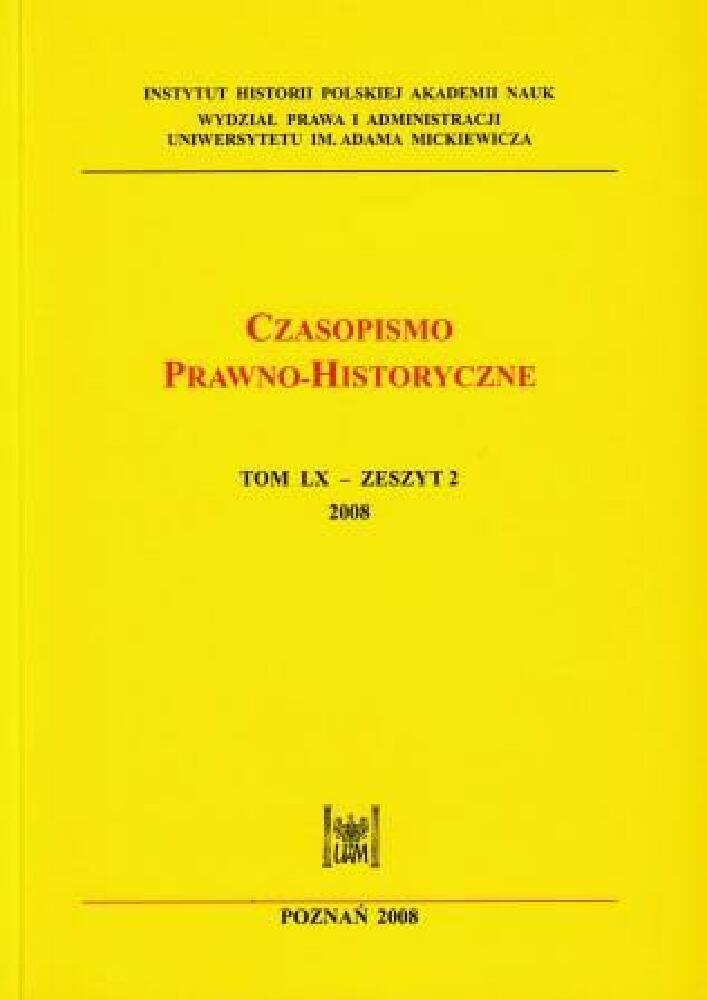Abstract
The issue of testate succession in Lithuanian Statutes (1529, 1566 and 1588) has been the focus of many studies undertaken by Polish scholars in the last 200 years in an attempt to determine the influence of Roman law on Lithuanian statutes. It has been recently proposed (S. Godek) that those influences are already present in the First Statute in which some references to Justinian Law can be found. A comparison of Lithuanian Statutes with the 14th century Roman law coursebook Summa utrisque iuris written by Master Raymundus confirms the opinion that Roman influences on Lithuanian regulations originated directly from that work. Most of the borrowings show influences of a formal nature and can be seen in the structure of the regulation as well as the terminology used in the Latin translation of an authentic old Russian text listing a catalogue of persons deprived of the right to make a will, and those excluded from being witnesses when a will was made. Summa utrisque iuris was undoubtedly an impulse to codify the principles of testate succession. Another example is the reception of the Roma norm with regards the state of lucida intervalla. On the other hand, as Lithuanian courts practice before 1529 shows, in the case of the regulation of a change to the will for example, the Roman principles were not received. Apparently, Lithuanian codifiers were selective in adopting Roman solutions.
Funding
Digitalisation and OA co-funded by the Minister of Education and Science (Poland) under contract no. BIBL/SP/0002/2023/1
License
Copyright by Faculty of Law and Administration, Adam Mickiewicz University, Poznań, 2008
OPEN ACCESS




